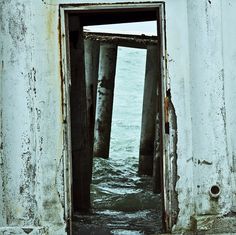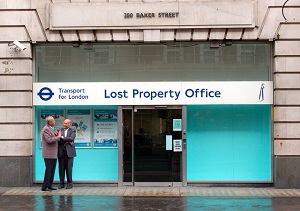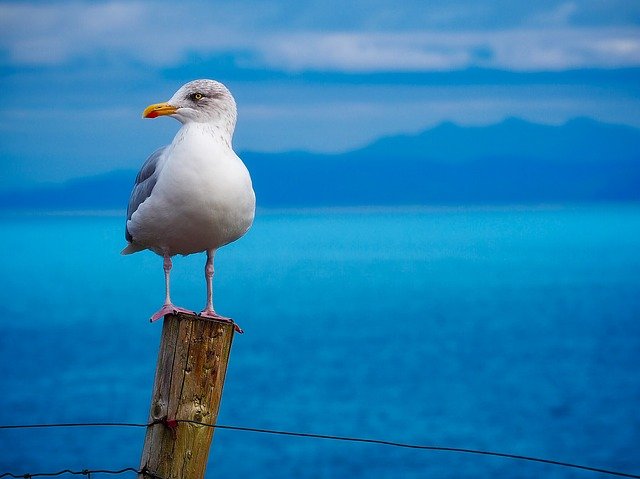You have no items in your cart. Want to get some nice things?
Go shopping Alberto stepped into La Conchita Bakery and paused just inside the door. He blinked a few times to help his eyes adjust from the Florida sunlight, and inhaled the doughy, sugary-sweetness. He took off his boat captain’s cap and brushed his hand through his thin, white hair.
Alberto stepped into La Conchita Bakery and paused just inside the door. He blinked a few times to help his eyes adjust from the Florida sunlight, and inhaled the doughy, sugary-sweetness. He took off his boat captain’s cap and brushed his hand through his thin, white hair.
“Alberto.” Conchita greeted him from behind her glass counter. “What do you wish this fine day?”
Alberto favored his right leg walking toward her. Fifty years later, the bullet injury still bothered him. With his arthritis getting worse, he swayed from side to side as he approached the counter.
“My wish is to see your face, the sweetest among the sweets.”
“Ay, viejo, nice piropo, but that line is as weak as your leg and just as old. How are you today, my friend? What can I get for you?”
“I’m alive and walking, Conchita. That’s as good as it gets at eighty-two, no? Pastelitos de guayaba, señora, two dozen.”
“You having a party?”
“Albertico got home last night. We meet his girlfriend’s family today. They are driving from Miami.”
“How is that grandson of yours? I thought he was still in Gainesville.”
“Sí, sí, he is. The girlfriend and the family? Cubanos de Miami. Such is destiny. The boy leaves Coquina Shores for the University of Florida, and meets a decent Cuban girl. They graduate this year. And, our Albertico, his degree cost him almost nothing, because he is so smart. He is a meriescolar. And when you are one of those, one of those meriescolar, they pay for your university.”
“So you’ve said, viejo, so you’ve said.” Conchita put the last guava pastry in the box and closed the lid. “Congratulations to you and your family. Twenty-seven pastelitos, señor. Enjoy.”
“Twenty-seven?”
“Pués sí. One free for each dozen, and an extra one for your piropo. It’s the only compliment I’ll get all day—qué coño, all week.”
Alberto placed the pastry box on his truck seat next to the two bottles of Anís del Mono, the sweet kind, he’d bought at ABC Liquors: one bottle to open with Yadira’s family to honor the visit, and one bottle to give her father as a gift. He’d given his father-in-law a bottle the first evening he went courting. His Violeta, six years gone, now. He gave Rogelio a bottle when he granted him his Clarita’s hand in marriage. A small tradition of his own making. This would show Yadira’s family that their Albertico came from good people.
Alberto drove home the roundabout way. He took 41 to the Four Corners and took a left where the highway turns south and crosses the river as it empties into the bay. Most days, but especially on warm days, the fishy, woodsy smell of the brackish inter-coastal waters wafted over the bridge. He always opened his truck windows and stuck his head out, savoring it, like a dog on a drive. Alberto liked to see the boats at the marina. Recreational boats. No cargo ships nor barges. The days of taking his small Boston Whaler out alone were gone, and he missed the water.
The family was right. Just too old now to go out alone. Driving his truck he could still do, but only in the daytime. To the bakery, to la bodeguita, Home Depot, and Publix. Places he knew well. But his night vision was terrible, and the water, pa’ qué decir, the water was just too unpredictable.
***
Alberto walked into his daughter’s house, his home now, too, and gently pushed the front door closed with the side of his good leg. He stood in the foyer, ABC bag in one hand, and the box of pastries in the other. The foyer opened to the living room and beyond that, through sliding glass windows to a sky-blue pool with a rock waterfall. His Clarita and her husband owned this house. Those Miami Cubans would be impressed. It had all been worth it. The risk he and Violeta took, the hardship of starting over, the years of work.
“Papi? Is that you?” Clarita called from the kitchen.
“Sí, ya voy,” Alberto answered.
Clarita, her freshly-dyed auburn hair held up in a messy knot by a plastic clip, wiped her hands on a stained, white apron. She reminded him so much of Violeta. The kitchen smelled of garlicky roast pork. His daughter spooned yellow deviled-egg filling into a plastic baggie. She squeezed the filling together, pressing the baggie, and snipped a corner tip with scissors.
“Where is everybody?” Alberto asked.
“Rogelio just finished mowing. He’s in the shower.”
Clarita squeezed the baggie, funneling swirls of yellow into the hard-boiled egg halves neatly arranged on a platter. “And Albertico was wiping off the patio furniture. I said he should take a quick swim when he’s done. Pobrecito, I think he’s nervous. Yadira called. They’re a good two hours away. They’ll be here twelve, twelve-thirty.”
“Here is dessert, hija.” Alberto placed the box and bottles on the kitchen island. “I’m going to visit with my grandson.” He took an egg from the platter and popped it whole in his mouth.
“They’re not ready,” Clarita said.
“I’m a growing boy,” Alberto mumbled through his mouthful.
The Florida sky was as clear and blue as the pool. Alberto grew basil, oregano, and rosemary in large terracotta pots strategically placed around the lanai to catch the sun. He snapped a sprig of basil, breathed its scent, and stuck it behind his ear—a childhood habit—basil to keep the island gnats and flies away from his face when he played.
“Albertico? Are you out here?”
“S’up, Abuelo?” his grandson said, coming out of the pool-bath.
“Looks like we have everything ready for your young lady.”
“Yeah, I see Mami’s gone all Martha Stewart. Did you see the new towels and fresh flowers in there?” Albertico tilted his head toward the bathroom.
“She wants what is best for you, mijo. A good impression. We have never met these people, alabao’ mijo, we have only met Yadira once, and only visited for moments. You two drove down for that party your friend gave. What is his name? I can never remember. Anyway, poof, you were in one door and out the other. We hardly saw you.”
Albertico had brought Yadira home for a weekend. He’d told his mother he’d met a girl, and were Facebook official. Alberto had shaken his head. In Cuba, official meant the man went to the girl’s father, asked permission to see her, and then visited the home in the evenings or went out with the girl’s mother in tow. Now official meant you clicked something on the computer. By the time his Clarita became a young lady, he and Violeta had lived in Coquina Shores for over fifteen years, and they knew the American ways. They were fortunate.
Clarita caught Rogelio’s eye, or was it the other way around? Rogelio’s people were Cuban refugees, too. The families knew each other. Alberto and Violeta permitted Clarita to go out unchaperoned, but there had been some of the traditional formality. Rogelio had spoken to Alberto first. Now, here was his grandson serious about a girl, and the families had yet to meet.
Not that he was really complaining about anything. Things change all the time, whether you have to flee your country or not. He had no regrets. He’d made a good life for himself and his family. In his heart of hearts he knew he’d lived a better life here than in Cuba, even if the revolution hadn’t come. He had been a harbor pilot. No special schooling. He’d learned from his father; sailing was a family trade. In the waters around his town, he knew the currents, and the tides. He knew the rocks and the shallows like the palm of his hand. He could bring in to port or take out to open water safely any ship on a moonless night. Knowing the waters got him and his father in and out of the harbor, and a modest life to go with it. That was all. He wasn’t one of those foolish old viejos thinking everything in Cuba was sweeter, brighter, better. Qué carajo, and the ones that went back for visits and returned all shocked because their towns weren’t the same. What did they expect? Was Coquina Shores, or any part of Florida for that matter, the same as it was fifty years ago?
He did have waves of nostalgia more often these days. But it wasn’t just missing Cuba. It was missing Violeta and their life together. It was missing his younger self—the self that was so busy working a full day he had no time for nostalgia—the self that could take his boat out and spend an entire Saturday or Sunday fishing the Gulf. Some nights, he actually scolded himself into being grateful, because too often instead of thinking this was one day more, he thought, it’s just one day less.
Alberto sat in a lanai chair and Albertico sat near him at the edge of the pool, his feet dangling in the water.
“Pués mijo,” Alberto said. “You have been un picaflor, a hummingbird tasting one flower after another. Now you have found the perfect flower—Yadira is beautiful and smart.”
“Yeah, and she’s Latina, too, so when you start with your poetic BS or Mami gets all majadera calling about did I eat and when and what, I don’t have to explain all the weird. And, I bet you were a picaflor yourself. Huh? Bet you were, Abuelo.” Albertico slid into the water causing ripples across the pool. “Did you buzz-buzz all over those little Cuban florecitas?”
“Only until I found your grandmother.”
“So, that’s a yes. What’s your number, Abuelo? How many flowers we talking about?”
“A gentleman does not tell.”
Albertico backstroked away from him singing, “Abuelo was a player. Abuelo was a player. Flor-flor-pica-pica-flor.”
Alberto laughed. “That’s disrespect. Nothing but disrespect.”
***
By the time the doorbell rang shortly after noon Alberto had changed into a crisp, fresh guayabera. His son-in-law and grandson wore neat and casual shorts and shirts. Clarita had transformed herself from kitchen cook to hostess—auburn hair past her shoulders, carefully applied red lipstick, stylish but simple clothes, half a dozen thin gold bangles jingling at her wrist. He’d given Violeta those gold bangles. He wished she were here, too.
“They’re here,” his daughter said. “Albertico, Rogelio, Papi, quick, they’re here, quick.”
“Chill out, Mami!” Albertico said. “I got this.”
Everyone gathered at the foyer, and Alberto hung back. This is their time, he thought, and watched his grandson open the door.
Yadira came in first. Young, thick black hair, almond eyes; she greeted Albertico with a quick, shy kiss. Behind Yadira was an older version with the same almond eyes but short hair. Alberto stood back watching as the mothers greeted and hugged, each paying the other mutual compliments on what a lovely child they’d raised. The fathers shook hands and patted shoulders.
“This is Alberto, my father,” Clarita said.
“Mucho gusto, bien venidos, it is a pleasure.” Alberto covered each hand in turn with both of his.
“And here is mine,” Yadira’s mother said. “Papi, ven, ven, come all the way in. Yadira, help him, give him room. This is Octavio, mi papá.”
Alberto stepped forward to shake the frail old man’s hand. He reached out then dropped his extended hand. He stood still and blinked hard one, twice. The third blink brought recognition. He couldn’t breathe, his chest hurt, a rising pressure filled his ears. Alberto opened his mouth and what came out was a pained wail. He swung back and slapped Octavio with open palm, hitting his ear.
The impact knocked the old man to the floor.
“Majua!” Alberto screamed and tried to swing again, but someone was holding him back. “Son of a bitch, cabrón. Let me go!”
Alberto tried to break away, but his son-in-law held him tightly from behind, his arms pinned at his side. “Viejo! Old man, what? Viejo, stop.” He heard Rogelio say. Alberto saw his grandson cradle the man they called Octavio on the floor. Women shouted. A child cried. Alberto turned around.
Yadira was crying. “What’s happening? I don’t understand what’s happening?” The girl said.
“Señor Alberto, this is my grandfather. His name is Octavio.”
“He is Majua to me.”
Clarita was pale. “Papi, you’re confused, Papi. It can’t be.”
He shook his head. “No, my daughter, I am not confused.”
“Mami, what the hell is going on?” Albertico asked.
“Señor Alberto, who, what is Majua?” Yadira asked.
“Una majua,” Alberto said, “is a small, insignificant little fish.”
***
They had been young boys together, Alberto and Octavio, running barefoot through the dirt roads of their neighborhood. They were friends before first grade and inseparable for the next eight years. Alberto and his family had a two-bedroom cement block house with a tin roof and a pump for water. Octavio’s home was even more modest. He lived with his mother and fisherman father in a thatched roof house near the beach. His mother cooked in an outdoor kitchen over a charcoal fire. Octavio’s father brought home buckets of majuas—tiny, smelt-like fish often too small to clean. His mother dropped them in a vat of hot oil and Alberto and Octavio ate them, salty and greasy like popcorn. Once, when they were four or five years old, they’d challenged each other to a majua-eating contest. Octavio’s mother dropped piles of crispy fish on the paper bag-covered table and they ate, giggling, grease dripping down their bare, thin, sun-browned chests. Octavio won, proclaiming himself the majua champion.
“You are a majua,” Alberto teased, and his nickname for his friend was born.
After the compulsory eighth grade, Alberto manned the pilot boat with his father and Majua fished with his. They stayed friends, years passed, times changed.
Majua became part of the revolutionary movement. He joined the Comité de la Defensa de la Revolución. Ostensibly a group formed to maintain civil order, it became a watch-dog group. Alberto watched as the subtle power the organization granted Majua began to change him. Small privileges became morsels that increased Majua’s hunger for more. Alberto saw this and distanced himself. He was gusano, a worm, not a member of the Party and quietly proud of it.
Alberto took over harbor pilot duties after his father’s death. No one questioned his expertise on the waters. But he hadn’t joined el Partido Comunista. Alberto’s trips in and out of the harbor were monitored. The Bay of Pigs came, and after that disaster, Clarita was born. She was a frail child with food allergies and a tender constitution. The embargo had brought scarcity and rationing of all goods. Finding the right foods for her daughter kept Violeta busy, stressed and afraid.
By her second birthday, Clarita was too weak, too thin, and too small for her age. Alberto and Violeta realized that if something didn’t change, Clarita wouldn’t see three. They talked, and considered, and vacillated, and finally decided. They had to leave. He and Violeta planned and waited for a moonless night. Alberto prayed for calm seas. He couldn’t risk taking the pilot boat, but he owned a motored skiff. He hid it in a secluded cove bordered by sea cliffs, and prepared to depart. They took nothing but gas, water, sugar to mix in the child’s bottle, and one bag of clothes. Keeping the cargo weight as light as possible provided speed.
Alberto knew the waters, he knew the sentry look-out positons, and he knew the risks.
When the right evening came, Violeta gave Clarita a draught she’d gotten from a curandera to make the child sleep. Alberto would paddle away from the coast, as far as possible, before he started the motor, reducing the risk of being heard. He could make Key West within a day.
Before getting in the skiff, Violeta tied Clarita to her bosom with a blanket. As Alberto wrapped a life jacket around his wife, he whispered, “If you have any doubts, my love, we can turn back.”
Violeta kissed his cheek, kissed the top of Clarita’s head, and said, “We go now. Together.”
Alberto pushed the skiff out until he was thigh-high in water, and climbed in. He paddled, hard. Once he rounded the point on the far side of the cove, water currents changed, and he would start the motor. But as he reached the point, he heard voices. He signaled for Violeta to crouch down. He paddled harder, but the waves pushed them back toward the rocks at the shore. Alberto was surprised. He’d chosen the spot because it was an area that wasn’t usually patrolled.
“I can’t believe they gave us flashlights to keep. They’re Russian. Come up here. Where are you?”
Alberto heard the voice and then saw beams of light dance across the water. He prayed. He tried to keep the boat still. He kept his eyes on the flashlight beam coming from above them.
“Wait, chico, I’m peeing down here.”
The second voice. Alberto knew that voice; he’d grown up with it. A wave pushed the skiff closer to the rocks, and Alberto saw Majua. And Majua saw him, too. Alberto touched his finger to his lips, signaling quiet. He held his hands together in prayer and held them out to his friend. He repeated his motions: quiet, prayer, a silent please. Didn’t Majua see him pleading?
“Aquí, down here, aquí!” Majua shouted. “They’re trying to get away!”
The flashlight beam quickly scanned the water. Alberto started the motor, and pointed the skiff out of the cove. Whoever had the flashlight also had a rifle. A shot hit the water, barely missing the boat.
Violeta screamed.
“Stay down, stay down, stay down,” Alberto shouted at his wife. He heard a second shot. The third he heard and felt instantly in his thigh. Alberto kept going. Time and speed were imperative. He knew that by the time Majua and the shooter walked back to town and notified a patrol boat, he needed to be in open water where catching the right currents in the Straits would propel them north, and away. He hoped their head start was enough to facilitate their escape.
He didn’t tell Violeta he was hit until he could no longer stand the pain. By then, the lights from the coast were no longer visible. In the weak light of his own small flashlight, Violeta used his belt and Clarita’s cloth diapers to apply pressure to his leg.
Sometime in the early morning, in the middle of the Straits, they spotted a U.S. Coast Guard plane. Violeta, with their child tied to her body, stood and waved an orange and black distress flag, rocking the skiff back and forth with her motion. Alberto could not stand.
***
Alberto sat by the pool, took off his captain’s hat, and rubbed it against his thigh. Through the glass doors he saw his family and Majua’s all talking at the same time. Yadira held an ice pack to her grandfather’s head. Clarita talked, gesturing wildly with her hands, and crying. Majua shook his head. Alberto caught Majua’s eyes. Then, Alberto saw him nod, drop his head and cover his face with gnarled hands. That’s when Majua’s daughter began to cry, too. She hadn’t known, Alberto realized, Majua’s daughter had never known about any of it. And, why would she? Why would Majua speak of such a thing?
Alberto turned away and said in a hush, “Ay, Violeta, the things of this life.”
“Abuelo? You okay?”
Alberto shifted around. His grandson had opened the sliding glass doors just enough to squeeze his body through. The boy sat with him.
“Abuelo, I didn’t know. I mean, I knew you’d escaped when Mami was little, and you’d been shot, but I didn’t know, you know? The names? I didn’t know the real names. And Yadira, she has her father’s last name anyway, and she didn’t know anything about anything. I swear.”
“Basta, mijo, I know.”
“I mean you and Abuela, you helped raise me. I would never do anything to hurt you. And,” Albertico stood up, kicked his chair. “What a fucking mess. I mean, Jesus, what are the goddamn odds?”
“I know, mijo, life is strange.”
“Family first. That’s what you taught me. I mean, you and Abuela were willing to die for Mami when she was a baby. And, so, I’ll do what has to be done.” Albertico said hoarsely, “I’ll break it off, Abuelo.”
Alberto felt his eyes well up. “My grandson is a man of honor.”
He looked past Albertico inside the house. Lovely, petite Yadira stood off to the side. He saw her look from her mother tending to her grandfather, to Albertico tending to him, and back. How long did brittle, shrunken Majua have on this Earth? How long did he? Alberto knew that if his grandson lived to be his age, a piece of his heart would always hurt for Yadira.
Albert pushed back his thin hair, and put on his captain’s hat. “I am very proud of you, my son. You do not have to choose. I choose for you.”

About Aracelis Gonzalez Asendorf
Aracelis González Asendorf was born in Cuba and raised in Florida. Her work has appeared in Kweli Journal, Puerto del Sol, The Rumpus: Letters in the Mail, Creative Loafing, The Acentos Review, and Saw Palm. Her short stories have been anthologized in 100% Pure Florida Fiction and All About Skin: Short Fiction by Women of Color. She has been a recipient of a New York State Summer Writers Institute scholarship, a Pushcart Prize nominee, and a contributor at the Bread Loaf Writers’ Conference. A former English and Spanish teacher, she is currently an MFA candidate at the University of South Florida.



